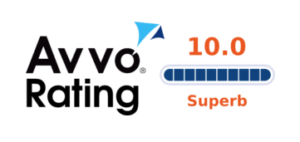



Reliance Standard Life Insurance Claim Denials
Reliance Standard Life Insurance Company, a prominent player in the group and individual insurance market, provides a range of products, including life, disability, and accident insurance. While these policies offer crucial financial protection during challenging times, policyholders may encounter claim denials, adding stress to an already difficult situation. Understanding the common reasons for these denials and the steps to appeal them is crucial for securing the benefits you deserve.
Common Reasons for Reliance Standard Denials
Reliance Standard, like other insurance providers, has specific policy terms and conditions that dictate eligibility for benefits. Denials often stem from discrepancies between the submitted claim and these policy provisions. Some frequent reasons for claim denials include:
- Lack of Sufficient Medical Documentation: Insurance companies require comprehensive medical evidence to substantiate a claim. This may include doctor’s notes, test results, diagnoses, and treatment plans. A denial might arise if the submitted documentation is incomplete, illegible, or doesn’t clearly demonstrate the claimed condition or its impact on the insured’s ability to work or perform daily activities. For disability claims, this often involves demonstrating an inability to perform the material and substantial duties of one’s occupation.
- Pre-Existing Conditions: Many insurance policies have clauses that exclude or limit coverage for pre-existing conditions. These are medical conditions that existed before the policy’s effective date. If Reliance Standard determines that the current claim is related to a pre-existing condition, they may deny coverage. The definition and application of pre-existing conditions can be complex, and disputes often arise in this area.
- Misrepresentation or Fraud: Providing false or misleading information on the insurance application or during the claims process can lead to a denial. This includes failing to disclose relevant medical history or exaggerating the severity of a condition. Insurance companies take instances of suspected fraud seriously and may conduct thorough investigations.
- Disputed Diagnosis or Treatment: Reliance Standard may disagree with the medical diagnosis or the recommended treatment plan. They may consult with their own medical experts, who might offer a different interpretation of the medical evidence. This is particularly common in disability claims where the extent of functional limitations is subjective.
- Policy Exclusions and Limitations: Insurance policies contain specific exclusions and limitations that define what is not covered. For example, certain conditions, treatments, or occupations might be excluded from coverage. Carefully reviewing the policy documents is essential to understand these limitations. A denial might occur if the claimed condition falls under a specific exclusion.
- Failure to Meet the Definition of Disability: Disability insurance policies have specific definitions of what constitutes a disability. These definitions vary depending on the policy and may require the insured to be unable to perform their own occupation or any occupation. If Reliance Standard determines that the insured does not meet the policy’s definition of disability, the claim will be denied.
- Lack of Timely Filing: Insurance policies often have deadlines for filing claims. Failing to submit the claim within the specified timeframe can result in a denial. It is crucial to be aware of these deadlines and submit all required documentation promptly.
If you are facing a Reliance Standard denial, the expert team at DarrasLaw is here to help.
Appealing a Denial
Receiving a claim denial from Reliance Standard can be disheartening, but it is not the end of the process. Policyholders have the right to appeal the decision. The appeal process typically involves reviewing the denial letter, gathering additional documentation, writing a formal appeal letter, meeting deadlines, and considering legal counsel. If your appeal is denied or if you encounter difficulties navigating the appeals process, consider seeking legal counsel from an attorney specializing in insurance claims. An experienced attorney can help you understand your rights and options and represent you in your appeal. Our Reliance Standard denial attorneys can help you collect any additional medical records, test results, or other evidence that supports your claim. This might include obtaining a second opinion from a specialist or providing more detailed information about your functional limitations. They can also assist in examining your denial letting to understand specific reasons for denial in order to address the issue raise by Reliance Standard.
Proactive Steps to Avoid Denials
While appealing a denial is possible, taking proactive steps can help prevent them in the first place. It is important to thoroughly review your policy so you understand the policy’s terms, conditions, exclusions, and limitations. Pay close attention to the definition of disability and the requirements for filling a claim. Maintaining accurate medical records can also help you avoid a denial. Keeping detailed records of all medical treatments, diagnoses, and doctor’s visits can expedite the process if you are faced with a denial. Keep an open line of communication with your doctor to ensure they document your condition and its impact on your ability to work or perform daily activities clearly and comprehensively. Finally, file your claims promptly as soon as possible after the event that triggers your coverage.
Contact the Reliance Standard Denial Lawyer at DarrasLaw
Dealing with a Reliance Standard claim denial can be a frustrating experience. However, by understanding the common reasons for denials and the appeals process, policyholders can increase their chances of securing the benefits they are entitled to. Proactive communication with your insurer and thorough documentation are key to a successful claim outcome. If you encounter difficulties, our legal advocates can provide valuable assistance in navigating the complexities of insurance claims. Contact us today.






